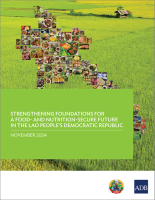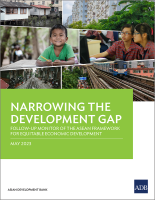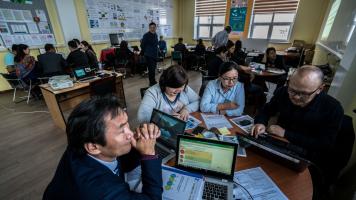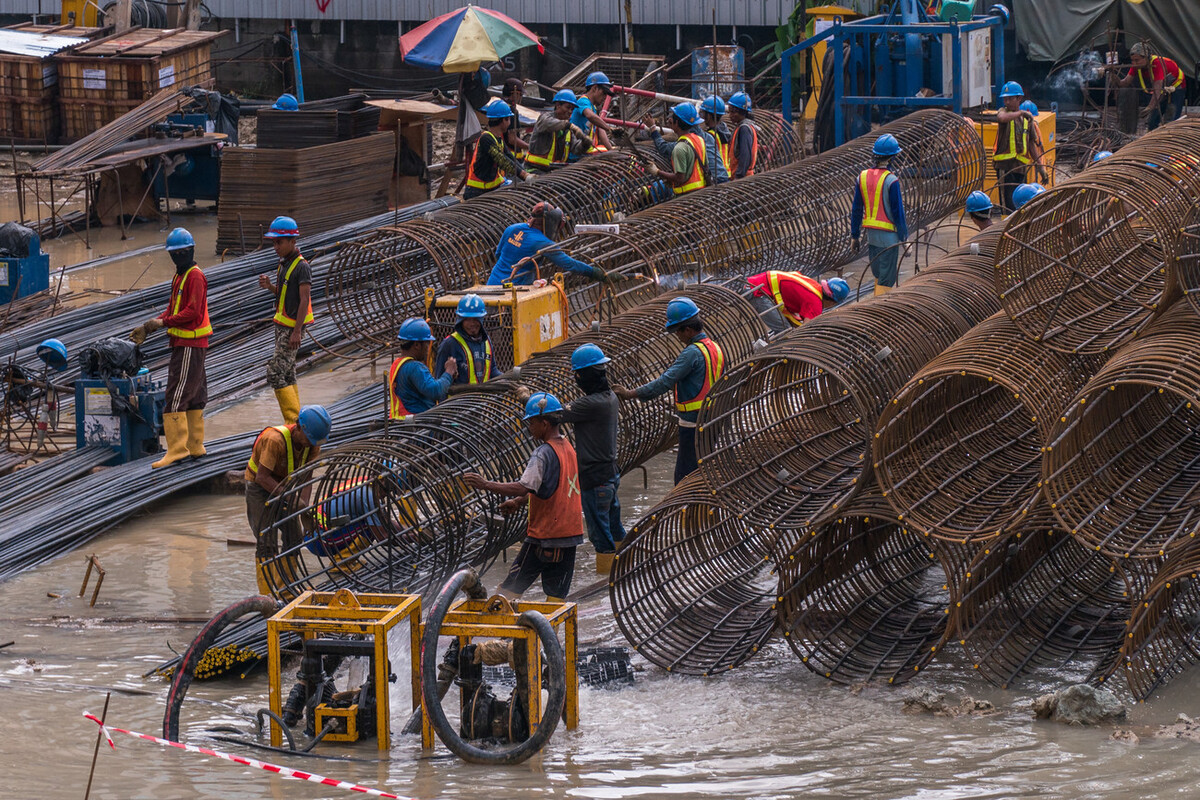
Southeast Asia is projected to grow by 4.7% this year and 5.0% in 2024. Photo credit: ADB.
Growth forecasts for developing Asia’s economies are looking brighter, with 4.8% growth projection this year and next year compared to the 4.2% growth in 2022.
The Asian Development Bank (ADB) forecasts faster growth for developing economies in Asia and the Pacific this year, as the continued easing of pandemic restrictions boosts consumption, tourism, and investment. The People’s Republic of China’s (PRC) reopening—as it pivots away from its zero-COVID strategy—is the main factor brightening the region’s growth prospects.
Economies in Asia and the Pacific are projected to grow 4.8% this year and next year, improving on the 4.2% growth rate in 2022, according to the Asian Development Outlook (ADO) April 2023, released yesterday. Excluding the PRC, developing Asia is expected to grow 4.6% this year and 5.1% in 2024. The region’s inflation, meanwhile, is forecast to moderate gradually toward pre-pandemic levels, though there is considerable variation across economies.
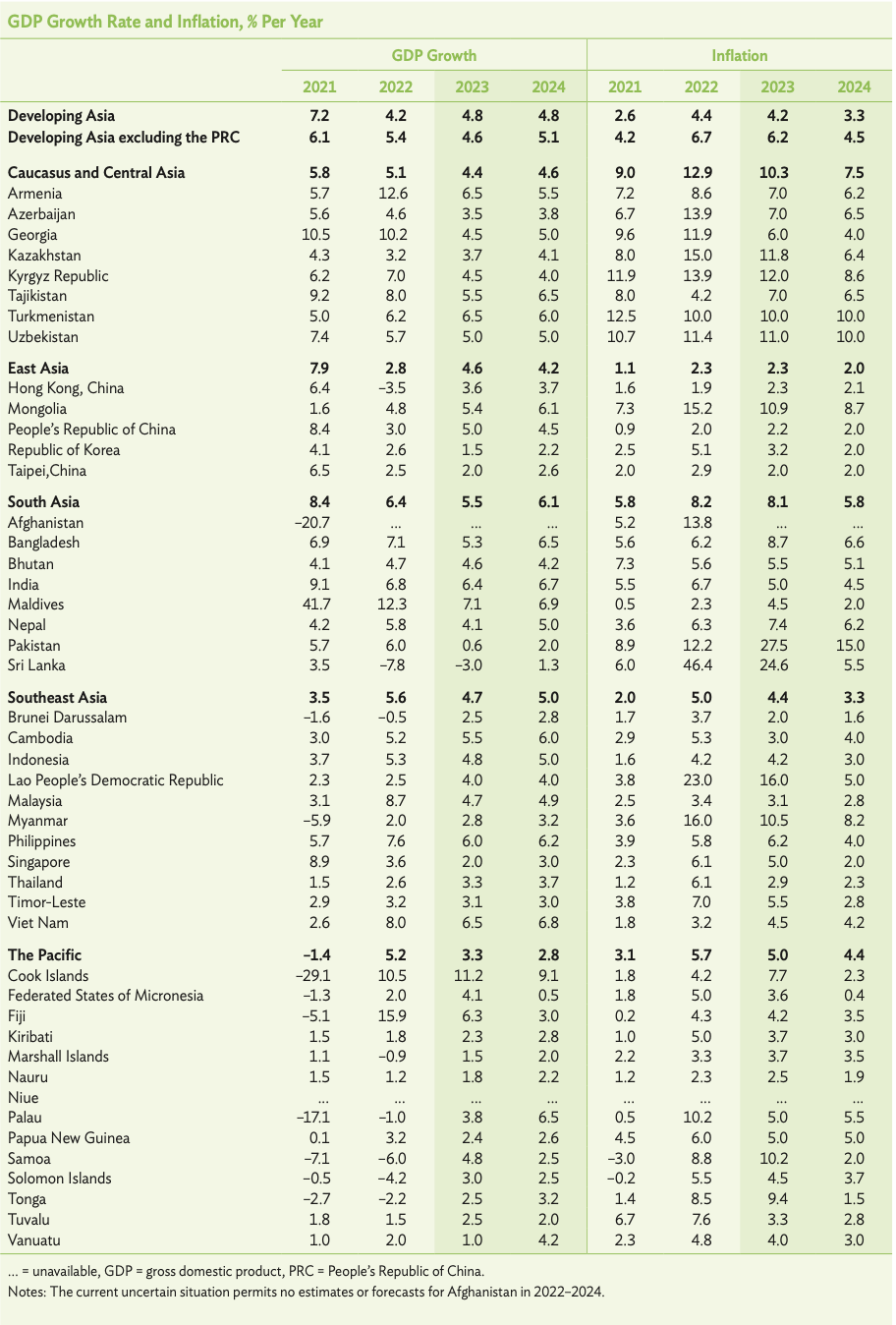
Improved consumption and investment are boosting recovery in many regional economies, offsetting the impacts of elevated food and energy prices caused by the Russian invasion of Ukraine and other global headwinds. Tourism and remittances are trending upward as pandemic restrictions ease further. In many tourism-dependent economies, visitor arrivals are steadily improving toward pre-pandemic levels.
Risks to the outlook persist, however. A protracted or escalated Russian invasion of Ukraine could stoke renewed spikes in commodity prices and global inflation and induce further monetary tightening. Tighter global financial conditions, combined with the increase in debt over the past decade and during the pandemic, have elevated financial stability risks, as evidenced by the recent banking sector turmoil in the United States and Europe. These risks must be carefully monitored and proactively addressed, according to ADO April 2023.
“Prospects for economies in Asia and the Pacific are brighter, and they’re poised for a strong recovery as we return to normalization following the pandemic,” said ADB Chief Economist Albert Park. “People are starting to travel again for leisure and work, and economic activities are gathering pace. Because many challenges remain, governments in the region need to stay focused on policies that support stronger cooperation and integration to promote trade, investment, productivity, and resilience.”
With the lifting of the zero-COVID strategy in December last year, the PRC economy is expected to grow 5.0% this year and 4.5% in 2024, compared with 3.0% growth in 2022. India, meanwhile, is forecast to expand by 6.4% this year and 6.7% next year, due to healthy domestic demand.
Projection for Southeast Asia and other subregions
Strong tourism performance and robust domestic demand are boosting Southeast Asian economies like Indonesia, the Philippines, and Viet Nam, with the subregion projected to grow by 4.7% this year and 5.0% in 2024. Economies in the Caucasus and Central Asia can also expect steady growth, with the subregion forecast to expand by 4.4% this year and 4.6% in 2024. Continued reopening and tourism recovery are supporting growth in the Pacific, with expansion likely to reach 3.3% this year before moderating to 2.8% in 2024.
Regional inflation will decelerate to 4.2% in 2023 and 3.3% in 2024 after reaching 4.4% last year. Fading supply chain pressures, tighter monetary conditions, and declining though still elevated commodity prices are expected to shape developing Asia’s inflation outlook.
ADB is committed to achieving a prosperous, inclusive, resilient, and sustainable Asia and the Pacific, while sustaining its efforts to eradicate extreme poverty. Established in 1966, it is owned by 68 members—49 from the region.
This article was first published by ADB on 4 April 2023.
